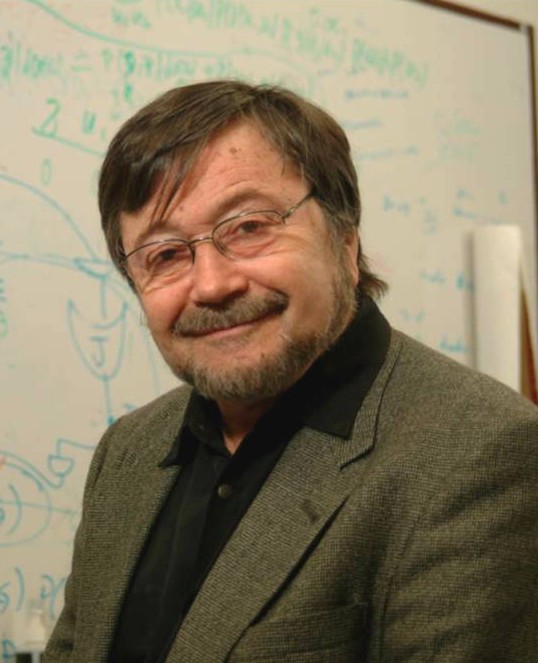-
(b.) - ?1936
Bio/Description
An Israeli American computer scientist and philosopher, best known for championing the probabilistic approach to artificial intelligence and the development of Bayesian networks, commonly used in artificial intelligence and information theory and has demonstrated empirical success in numerous applications including low-density parity-check codes, turbo codes, free energy approximation, and satisfiability. He is also credited for developing a theory of causal and counterfactual inference based on structural models. He is the 2011 winner of the ACM Turing Award, the highest distinction in computer science, "for fundamental contributions to artificial intelligence through the development of a calculus for probabilistic and causal reasoning." Judea Pearl was born in Tel Aviv, Israel, in 1936 and received a B.S. degree in Electrical Engineering from the Technion in 1960. In 1960 he came to the United States and received a Master's Degree in Physics from Rutgers University, U.S. and a Ph.D. degree in Electrical Engineering from the Polytechnic Institute of Brooklyn, U.S., in 1965. He worked at RCA Research Laboratories on superconductive parametric and storage devices and at Electronic Memories, Inc., on advanced memory systems. He then joined UCLA's Henry Samueli School of Engineering and Applied Science in 1970, where he is currently a professor of computer science and statistics and director of the Cognitive Systems Laboratory. In addition, as of 2011, he is a member of the International Advisory Board of NGO Monitor. His work is also intended as a high-level cognitive model. He is interested in the philosophy of science, knowledge representation, nonstandard logics, and learning. Pearl is described as "one of the giants in the field of artificial intelligence" by UCLA computer science professor Richard Korf. His work on causality has "revolutionized the understanding of causality in statistics, psychology, medicine and the social sciences" according to the Association for Computing Machinery. He has authored such books as: "Heuristics", Addison-Wesley, 1984; "Probabilistic Reasoning in Intelligent Systems", Morgan-Kaufmann, 1988; "Causality: Models, Reasoning, and Inference", Cambridge University Press, 2000; and in memory of his son, "I Am Jewish: Personal Reflections Inspired by the Last Words of Daniel Pearl", Jewish Lights, 2004. He is also the author of several scientific papers and a lecturer. Among the numerous awards he has received are: In 2012--Harvey Prize (For "foundational work that has touched a multitude of spheres of modern life"); in 2011-the ACM Turing Award; and the IEEE Intelligent Systems' AI's Hall of Fame. He and his wife, Ruth, had three children; one of whom was journalist Daniel Pearl, who was kidnapped and murdered by militants in Pakistan connected with Al-Qaeda and the International Islamic Front in 2002 for his being American and Jewish.
-
Date of Birth:
1936 -
Gender:
Male -
Noted For:
One of the pioneers of probabilistic approach to artificial intelligence and the development of Bayesian networks; also developer of a theory of causal and counterfactual inference based on structural models -
Category of Achievement:
-
More Info:


